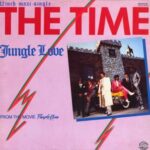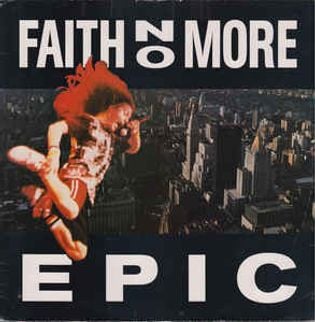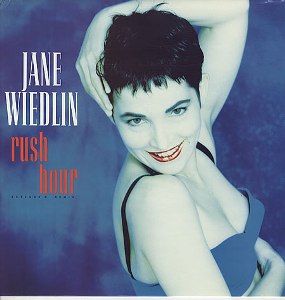 Morris Day & The Time’s “Jungle Love” is one of those tracks that instantly evokes images of flashing lights, neon stages, and the raw, unbridled energy of early 1980s Minneapolis funk. Released in 1984 on the soundtrack for Purple Rain and later featured on their 1984 album Ice Cream Castle, “Jungle Love” stands as both a testament to the band’s dynamic chemistry and an emblem of the era’s exuberant, playful approach to funk. From its opening drumbeat, the song sets a tone of kinetic energy—an invitation to the dance floor that is impossible to resist. The track perfectly captures the persona of Morris Day: suave, cocky, and charismatic, with just enough theatrical flair to make every lyric feel like part of a larger, irresistible performance. Day’s vocals are as much about attitude as they are about melody; his delivery carries a flirtatious, teasing quality that is both humorous and hypnotic, immediately drawing the listener into the jungle of rhythm and lustful playfulness that the song promises.
Morris Day & The Time’s “Jungle Love” is one of those tracks that instantly evokes images of flashing lights, neon stages, and the raw, unbridled energy of early 1980s Minneapolis funk. Released in 1984 on the soundtrack for Purple Rain and later featured on their 1984 album Ice Cream Castle, “Jungle Love” stands as both a testament to the band’s dynamic chemistry and an emblem of the era’s exuberant, playful approach to funk. From its opening drumbeat, the song sets a tone of kinetic energy—an invitation to the dance floor that is impossible to resist. The track perfectly captures the persona of Morris Day: suave, cocky, and charismatic, with just enough theatrical flair to make every lyric feel like part of a larger, irresistible performance. Day’s vocals are as much about attitude as they are about melody; his delivery carries a flirtatious, teasing quality that is both humorous and hypnotic, immediately drawing the listener into the jungle of rhythm and lustful playfulness that the song promises.
Musically, “Jungle Love” is a masterclass in funk craftsmanship, combining tight rhythmic interplay, slick guitar licks, punchy bass lines, and inventive keyboard riffs. The rhythm section, anchored by the impeccable percussion and grooving bass, establishes a foundation that is both precise and fluid, allowing the track to surge and pulse like a living organism. The guitar riffs interweave seamlessly, sometimes percussive, sometimes melodic, creating a dynamic tension that propels the song forward. The keyboards, with their bright, slightly quirky accents, add texture and color, contributing to a sonic palette that is rich and playful without ever feeling cluttered. Every element feels perfectly calibrated, a reflection of The Time’s reputation as one of the most tight-knit and technically proficient bands in funk.
Lyrically, the song thrives on its exuberant, almost cartoonish sense of romance and pursuit. “Jungle Love” is less about subtlety and more about spectacle: the lyrics are bold, humorous, and overtly suggestive, painting a picture of flirtation and chase that is as much about attitude and swagger as it is about narrative. Morris Day’s delivery amplifies this sense of playful bravado; his voice carries the weight of performance and personality, making it feel as though he is not merely singing a song but embodying a character on stage. The lyrics, simple yet effective, work in tandem with the rhythm to create a call-and-response energy that feels immediate, as if the song exists in the live moment rather than on a recorded track. There is a directness to the language, a focus on excitement, lust, and humor that makes the song feel fun, irreverent, and alive.
The production of “Jungle Love” reflects the era’s burgeoning embrace of digital technology and studio experimentation. Though deeply rooted in traditional funk instrumentation, the track is polished and layered, with subtle effects on vocals and instruments that give it a glossy, larger-than-life quality. The interplay between instruments is meticulously balanced; each element has space to shine, yet the overall sound remains cohesive and tight. This sense of polish does not diminish the raw energy of the performance; if anything, it enhances it, allowing the band’s charisma and musicianship to shine in a format that feels both immediate and cinematic.
“Jungle Love” is also a cultural artifact, capturing the zeitgeist of the Minneapolis sound pioneered by Prince and his associates. It bears the hallmarks of this musical movement: tight funk grooves, punchy rhythms, quirky synthesizers, and a playful, almost self-aware sense of humor. The song’s connection to the Purple Rain era situates it within a broader narrative of musical experimentation, performance spectacle, and theatricality. Like Prince, Morris Day & The Time embraced the intersection of funk, rock, and pop, creating music that was rhythmically compelling, melodically engaging, and visually flamboyant. The song reflects this hybrid sensibility, combining the precision of funk with the flash and flair of pop, making it a track that is both musically satisfying and irresistibly entertaining.
One of the song’s most distinctive features is its sense of performance. Listening to “Jungle Love” is like stepping into a live show: the track is imbued with energy, call-and-response dynamics, and a sense of playful competition between instruments and vocals. The drum and bass interplay drives the momentum, while the guitar and keyboards add layers of conversation and commentary. Morris Day’s vocals act as the ringmaster, orchestrating the chaos with charm and swagger. There is an almost theatrical quality to the way he sings, a sense that every phrase is a wink, a tease, or a dare. The song’s energy is infectious; it demands movement, whether in the form of dance, head-nodding, or simply tapping along to its relentless pulse.
The song’s influence and legacy are substantial. “Jungle Love” has been featured in film and television, often used to evoke the playful, stylish energy of the 1980s or to underscore scenes of exuberant, larger-than-life action. Its enduring appeal lies not only in its catchy hook but also in the attitude and personality that Morris Day & The Time inject into every note. The track has been celebrated for its musicianship, its humor, and its sense of fun, and it continues to be a touchstone for fans of funk and 1980s pop culture. Even decades after its release, it retains the power to energize, entertain, and evoke nostalgia for an era defined by bold musical experimentation and theatrical performance.
Morris Day & The Time’s chemistry as a band is on full display in “Jungle Love.” Each member’s contribution feels essential, whether it is the punchy brass accents, the propulsive rhythm section, or the playful keyboard motifs. The song’s strength lies in this cohesion; it is impossible to imagine it without the interplay of all its parts. The musicianship is precise yet fluid, capable of tight, intricate passages as well as moments of improvisational feel. This balance between technical skill and performance energy is part of what gives the song its timeless appeal, allowing it to resonate both as a studio track and as a live performance staple.
The humor and theatricality in “Jungle Love” are key to its identity. Morris Day’s vocal delivery and stage persona imbue the song with a sense of narrative and drama, making it feel as though listeners are witnessing a story unfold rather than simply hearing a sequence of musical events. There is a flirtatious edge to the lyrics and performance, a playful tension between pursuit and charm that keeps the listener engaged. The song’s energy, combined with its humorous and sometimes cheeky lyrics, creates a dynamic experience that is both entertaining and musically impressive. It is this blend of fun, skill, and personality that has helped the song endure as a classic of the era.
The track’s arrangement is deceptively simple, relying on a groove that feels effortless but is carefully constructed to maintain tension and momentum. The bass and drums lock into a steady pulse that anchors the song, while the guitar and keyboard lines interweave to create a rich, layered texture. Morris Day’s vocal lines ride atop this foundation, punctuating key moments with inflection, humor, and attitude. There is a natural ebb and flow to the arrangement, with rises and pauses that give the listener a sense of anticipation and release. The result is a song that feels alive, constantly moving and evolving even within its relatively brief runtime.
“Jungle Love” also benefits from its lyrical economy. The song does not overexplain its story or message; it relies on suggestion, attitude, and repetition to create impact. The lyrics are memorable, easy to sing along to, and loaded with personality. Each line reinforces the song’s playful, flirtatious tone, making it impossible to separate the music from the performance. This economy of language mirrors the tightness of the instrumentation, creating a song that is cohesive in both sound and spirit.
The track’s relevance endures because it captures a moment in music history while also possessing qualities that are timeless. Its infectious groove, witty lyrics, and energetic performance resonate beyond its original context, allowing it to appeal to new generations of listeners. “Jungle Love” exemplifies how funk music can be both technically sophisticated and instantly enjoyable, proving that complexity and accessibility are not mutually exclusive. The song’s ability to bridge these qualities has helped secure its place in the pantheon of classic 1980s funk.
The song’s legacy is further amplified by its connection to the Minneapolis music scene, which produced some of the most influential and innovative sounds of the 1980s. Alongside Prince and other contemporaries, Morris Day & The Time contributed to a distinctive musical identity defined by tight grooves, inventive arrangements, and an irrepressible sense of fun. “Jungle Love” embodies these qualities, showcasing the skill and charisma of the band while also celebrating the exuberance and playful spirit of the scene.
Live performances of “Jungle Love” are a testament to its enduring appeal. The song’s structure and energy lend themselves perfectly to stage dynamics, allowing Morris Day & The Time to expand and embellish the track with improvisation, call-and-response sections, and showmanship. The audience becomes part of the experience, responding to the music, the lyrics, and the performance energy. The song transforms from a recorded track into a communal celebration, where music, personality, and performance converge to create a memorable, immersive experience.
Morris Day’s persona is inseparable from the song itself. His charm, wit, and swagger elevate the track from mere funk composition to theatrical spectacle. Every vocal inflection and lyrical flourish feels intentional, adding layers of meaning, humor, and excitement. The combination of personality and musicianship creates a dynamic that few bands of the era could match, and it is this synergy that makes “Jungle Love” so compelling.
“Jungle Love” is more than just a song—it is an experience, a snapshot of a particular moment in music history, and a celebration of funk, humor, and performance. Its infectious rhythm, clever lyrics, and charismatic delivery make it a standout track, while its technical precision and cohesive arrangement underscore the talent and artistry of Morris Day & The Time. The song exemplifies the power of music to entertain, energize, and transport listeners, capturing both the spirit of its era and the timeless appeal of well-executed, joyful funk.
The track’s combination of style, humor, and musical prowess ensures its relevance even decades after its initial release. It is a song that can be appreciated on multiple levels: as a piece of musical craftsmanship, as a vehicle for performance and persona, and as an emblem of 1980s cultural exuberance. “Jungle Love” invites listeners to participate in its fun, to move to its rhythm, and to revel in the interplay between groove and attitude.
Ultimately, “Jungle Love” by Morris Day & The Time is a masterful blend of musicality, performance, and personality. Its lasting impact lies not only in its infectious groove and memorable lyrics but also in its embodiment of an era defined by creativity, showmanship, and exuberance. The song continues to inspire, entertain, and captivate listeners, demonstrating that the combination of technical skill, charismatic performance, and playful energy can create music that transcends time, genre, and cultural context.
“Jungle Love” remains a vibrant, electrifying example of 1980s funk at its best. Its energy, humor, and inventiveness continue to resonate, capturing the essence of Morris Day & The Time and solidifying the track’s place as a timeless classic in the landscape of popular music. It is a song that compels movement, evokes nostalgia, and celebrates the artistry of funk in a way that few other tracks can match, making it an enduring testament to the power of rhythm, personality, and sheer, unbridled fun.


